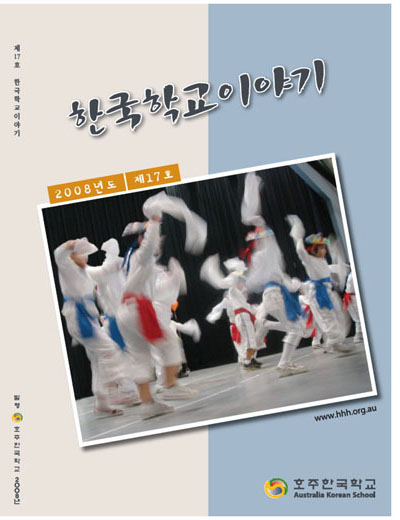Hi my name is Anna Lee
I was asked to speak to you today about my own experiences learning Korean as well as why I send my own 4 children to Korean School.
I am a second generation Korean Australian.
Things were very different when I was growing up – there weren’t many Asians and many times I hated being Korean.
I hated when my friends came over to my house and my grandmother was boiling pig’s feet or when my mum opened the fridge and the kimchi smell was like a sewer.
But none of these things could compare to how much I hated going to Korean school! I hated it so so so so so so much because none of my friends went to school on a Saturday!
I’m going to ask you to put up your hands if you LIKE coming to Korean school?
Well you’re better than I was!
Let me tell you what it was like for me every Saturday.
Every week I had to spend my Saturday mornings at an old rundown house.
How would you feel seeing the steps were cracked, the door was cracked, the floor was cracked and the walls were cracked?
But do you know what was cracked the most?
My heart!
Every Saturday morning I would cry tears and get angry at my parents asking why I had to learn something I wouldn’t end up using anyway.
This ended up being so untrue.
My parents stuck to their guns and I ended up going to Korean school all my primary school years. I was able to listen, speak, read and write in Korean. Because of this foundation I was able to go on and study Korean at university, teach my Aussie brother in law how to read and write in Korean (which really came in handy for him because he ended up living in Korea), I got a job working in Korea as a teacher at a Foreign Language high school and currently I’m volunteering as an interpreter/translator.
Remember how I said to my parents “why do I need to learn Korean when I won’t end up using it anyway”? How very wrong I was!
Most of my twenties revolved around my Korean language skills.
It was only as I got older that I realised how thankful I was to my parents that they had the foresight and unwavering determination to make sure I learnt Korean.
Seeing how many opportunities have been afforded me because of Korean how could I not provide my own 4 children with this same opportunity?
However we do have to reap what we sow
Guess what my children were like when they had to go to school on Saturdays?
That’s right – Every Satuday I became a human dartboard from all the death stares that were thrown my way.
But I remember what I was like and so I try to be understanding.
If I can offer some advice to parents it would be that we have to be patient!
Anything worthwhile doing takes time and reward comes after hardship.
Our children may not like coming to Korean school now but there will come a day when they will be so grateful!
Korea has come so far as a nation and in the future it will only play a greater role on the international stage.
How exciting that our children will have this crucial asset of knowing the Korean language! How proud will we feel when we see our kids contributing to communities, businesses and the world!
To all the students I would like to say I have been in your shoes. Coming to Korean school on Saturday is not easy.
But the present suffering is well worth the future rewards.
to I hope you can be thankful towards your dedicated parents who are committed your future, your teachers who I know work tirelessly and with so much caring to make your lessons both informative and enjoyable, and lastly for this wonderful “uncracked” school.
Learning a language is to learn about the people and their culture.
The biggest reward you will gain from learning Korean is that you can stay connected to your family and your heritage.
It means you can tap into an amazing resource – the vast knowledge that comes from a 5000 year old culture.
Our ancestors learnt and passed down values such as respect for elders, sacrifice for the next generation, generosity, hard work, adaptability and love of education. These very Korean values are reflected in our language.
As we grow older we tend to search for our roots, our origins. Learning Korean is not just to learn a language, it is to find your identity and belonging.
I hope that learning Korean leads to a wealth of opportunities and experiences.
But more importantly I hope that it leads to awareness of your self, your family and your place in this world.
Thank you.



